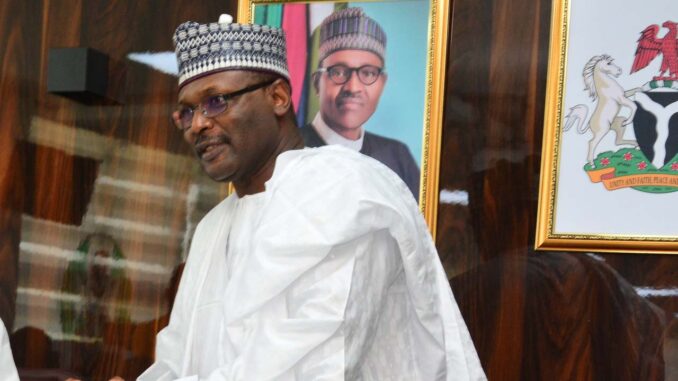
With only a clear year to the next general elections in Nigeria, there is a necessity again to canvass greater participation by women in politics; and to seek the removal of the marginalisation syndrome on the feminine gender in the process and acts of governance.
A campaign towards this, through constitutional and electoral reforms, is necessary because although women participate in politics as voters, candidates, politicians, civil society activists; they tend to be treated differently in the political arena, with men being more visible and dominant.
In Nigeria, women are active voters. A gender analysis of the consolidated 2017 and 2018 nationwide continuous voters registration (CVR) exercise, shows that male constitutes 7,173, 863; and female, constitutes 5,840,306. However, when it comes to being voted into elective positions, women are largely kept aside.
Some of the factors responsible for the slow progress of women in Nigerian politics are the failure to promote their leadership in their own political organisations, inadequate funding available for their campaigns, godfatherism, lack of self-confidence, and the cultural conditioning factors that assign them greater responsibility in family tasks.
Through misconceptions about feminism, motherhood, and the family, it is assumed that the role of the woman ends in the ‘kitchen’ and the children’. President Muhammadu Buhari during a state visit to Germany in October 2016, responded to his wife’s criticism of his presidency with the following words: “I don’t know which party my wife belongs to, but she belongs to my kitchen and my living room and the other room.” This remark depicts the cultural stereotype placed on women in Nigeria.
Gender discrimination in Nigerian politics is also compounded by the general news media. According to the African Media Barometer, bias against women has not completely gone away and men’s views are still favoured by media when discussing “important” issues like politics, which is the sector in which women’s voice is least heard. In addition, scholars submit that historical analysis of constitutions, electoral laws, and processes in Nigeria are incontrovertibly gendered insensitive, tracing it from the era of the Clifford Constitution of 1922 when the first constitution in Nigeria was made to the 1999 constitution.
This means that women, who make up about half of the population, marginally participate in governance; a situation that has almost remained invisible in the party system in Nigeria.
Yet, Nigeria’s pre-colonial history clearly captured the exploits of notable female political figures such as Queen Amina of Zaria, who led armies to drive out invaders from Zaria; Moremi of Ile-Ife, whose sacrifice for her people speaks to selfless leadership. Contemporary political history of Nigeria also bears testimony of prominent women leaders like Funmilayo Ransome Kuti, a crusader who led Egba women on a protest against taxation, Margaret Ekpo, Hajia Gambo Sawaba, who championed the cause of the oppressed in the northern parts of Nigeria and Iyalode Tinubu of Lagos, further testifying to the rich contribution of women to the socio-political and economic development of Nigeria.
Women organising for improved representation in politics should use their latent power and numbers as resources for addressing the factors fuelling their marginalisation. They should draw on the Nigeria National Gender Policy (NGP), which recommends 35 per cent affirmative action and seeks for an inclusive representation of women with at least 35 per cent of both elective political and appointive public service positions respectively, which is yet to be fulfilled.
As the nation gradually prepares for the 2023 general election, women should seek to exercise their fundamental civil and political rights. Their integration into politics will strengthen democracy. They should use moral suasion, advocacy, bargaining, and negotiation for power to pursue internal party democracy that will entrench affirmative action in party constitutions with consequences for disobedience also entrenched because promises that are not in the party constitution cannot be enforced.
Women should close ranks and engage the National Assembly for the amendment of the Electoral Act and passage of the gender equality bill into law, which are strategic interventions that will address the gender imbalance in Nigerian politics.
While there are various initiatives of the government targeted at engendering women participation in politics in the country, such as the creation of the Federal Ministry of Women Affairs and the development of the National Gender Policy, the ministry, as well as the president, should be held accountable for the slow implementation of the Gender Policy and other initiatives. As such, relevant Ministries, Departments and Agencies (MDAs), community and religious leaders, organised private sector, media, and NGOs in collaboration with international development agencies should rise up to the occasion, work with the government – to accelerate the implementation of Nigeria NGP aimed at improved representation of women in politics.
On accountability, women groups and NGOs should latch on to the ongoing constitutional review processes at all levels to institutionalise accountability mechanisms and frameworks in the implementation of the National Gender Policy and the use of gender-disaggregated data for planning; because available evidence since the return of civilian rule in 1999 and the socio-political realities suggest the need for constitutional and electoral reforms in Nigeria, to challenge marginalisation of women in politics.
The time to act is NOW because a nation that is not engendered is endangered!
END

Be the first to comment